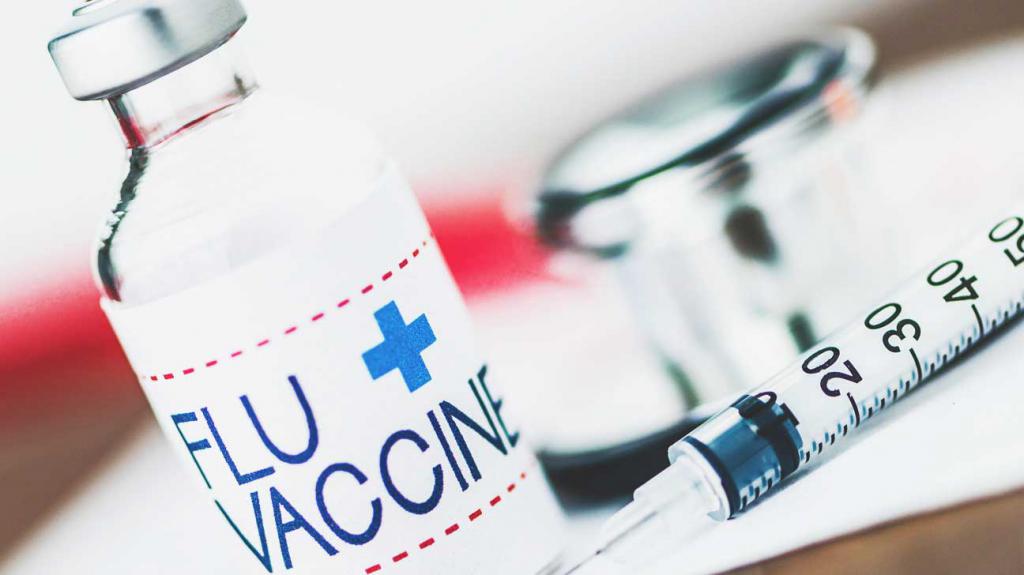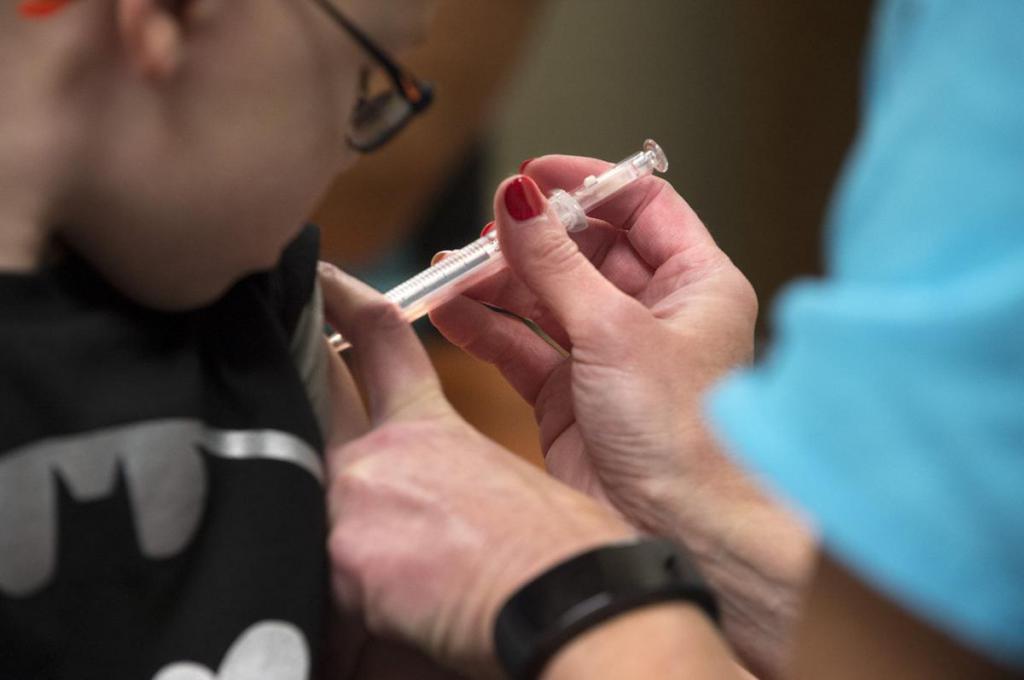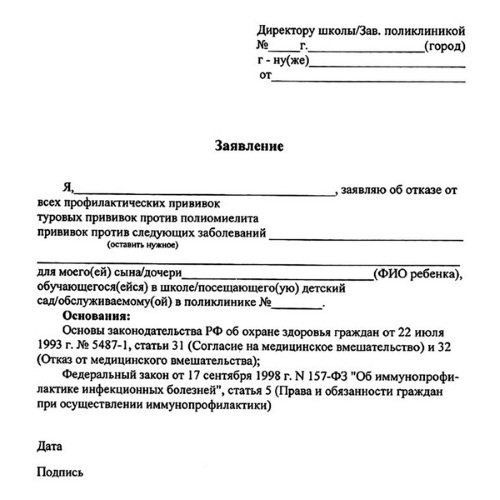The onset of the autumn-spring season every year provokes the appearance of a large number of people with viral infections in the form of acute respiratory infections. The most unpleasant diagnosis is the flu, which is put to almost every second during the revelry of such an infection. Every year, the virus mutates and requires new vaccines, new treatments.

Attitude to vaccination among the population
The last decade has given the world "bird" and "swine" flu, which killed dozens of people. The authorities after these cases began to appeal to the population with a recommendation to be vaccinated against the flu, but such calls do not always meet with approval and support. Opinions were divided: someone categorically refuses to be vaccinated, someone is the first to take the turn to the medical office. Flu vaccination is performed during exacerbations of respiratory diseases.

What is a vaccine?
Any vaccine, including the flu vaccine, is a special composition in which there are killed or severely weakened pathogens. The change in health after vaccination is explained by the fact that the body begins to fight the introduced infection, developing antibodies against it.
The complexity of developing an influenza vaccine is due to the fact that the virus of this disease mutates over time. As a result, new strains can be so different from the original that it can be considered as another form of flu. The downside is that the vaccine from one strain does not protect against the disease by another, so the risk of contracting another strain increases significantly.

Who needs vaccination?
Failure to get the flu shot is strictly voluntary. Except in those situations when a person has to communicate with a large number of people (including children) at work, the safety of others depends on the state of hygiene in the workplace or on the quality of his activity. With a high temperature, a feeling of confused consciousness and general weakness, it is difficult to perform professional duties at the proper level. When a flu shot is prescribed, individual contraindications can cause it to be abandoned. Therefore, we will try to analyze who is strongly recommended to receive a similar vaccine.
The list of persons subject to mandatory vaccination includes the following categories of workers:
- Carrying out their labor duties in places with an unfavorable epidemiological situation;
- Workers in shelters for homeless and infected animals;
- Those working in the field of public utilities (sewer cleaning, laying of communications, garbage collection and disposal, etc.);
- Medical professionals, especially those dealing with human biomaterials;
- Educational staff, starting at DOW.

When should you not get a flu shot?
A variety of horror stories about heartbroken parents who have lost their children after visiting a vaccination room can be found all over the Internet. Even if some of these cases have taken place, this does not mean that everything is so bad. Complications after vaccination can be, if at that time a person already had health problems. If a flu shot is prescribed, the contraindications listed below may allow you to not officially do so.
Not every person is shown to be vaccinated. The following are situations in which refusal of a flu shot is appropriate (even if only temporary):
- An allergic reaction to egg white or a vaccine test.
- Exacerbation of a chronic disease.
- Recently transferred ARVI (no more than 2 weeks ago).
- Body temperature is above 37 degrees.
- Deterioration in general condition after previous vaccinations.
The listed reasons are officially approved in case a visitor of a medical institution decides to issue a refusal from a flu shot. If you do not work in areas where employees must undergo this procedure, the employer has the right to neither require you to be vaccinated, nor dismiss you in case of refusal. In case of refusal, an adult flu vaccine is not a ground for termination of an employment contract. Failure may lead to dismissal when specified by special requirements.
Influenza vaccination is given to children with the knowledge and consent of their parents, on the recommendation of a responsible health professional. If he identifies at least one of the indicated contraindications, the child’s medical record is marked with the corresponding mark on the failure to vaccinate and the reason for refusing vaccination. When the child feels better, he can be taken to a vaccination room where he will be vaccinated against influenza.

Why vaccination is needed
People tend to view events in life through the prism of how much they personally affect them. A person spends a certain part of his life at work. No matter how much he likes her, he must fulfill his functional duties and ensure order in the workplace. If you are a creative person who does not recognize conventions and restrictions, your best workplace is in your own home, without bosses and emergency workers. But even under such conditions, there is no guarantee that you will not get sick with something like a common flu.
If the work is arguing in the hands, it is literally burning, there is no desire to refuse to do what you love because of illness. If the work is not particularly loved, still no one cancels your function. Even if you take a break of five to seven days, many unresolved tasks will accumulate during your absence.
Flu danger
In children’s and other educational institutions, snooping, nose-speaking students and teachers are not only not aesthetically pleasing, but also dangerous to the health of others. Especially if someone in the team is undergoing medical procedures or has recently recovered from an exacerbation of a chronic sore. Or among colleagues there are pregnant employees in the early stages, for whom the flu is the same as a sentence for an unborn child. Yes, and you are unlikely to like it if at the time of the next rush, someone from your loved ones falls down with a fever and a runny nose and you have to watch it at night.
It is especially difficult with children, they become moody, constantly require attention, sleep poorly. If a child sweats heavily in his sleep during an illness, he must be constantly changed to dry, so that it does not get worse. Despite these obvious causes of a purely selfish nature, some people believe that the flu vaccine is a hidden evil.

Reasons for refusing vaccination
Many people believe that modern medicine and pharmacology have become a kind of business, actively imposing expensive drugs and treatment regimens. Therefore, when doctors at polyclinics recommend vaccination, their words are perceived with hostility, they say, they again begin to impose procedures. Although the flu shot is free.
Another reason is the prevailing opinion, even among medical workers, that vaccines suppress natural immunity, and after this procedure you can get other “sores” that are worse.
Oil is poured into the fire by media reports about a sharp deterioration in the health status of patients after vaccination, including death.
You need to understand that getting a vaccine is voluntary, and citizens are not required to blindly follow the orders of state institutions.
Consequences of failure
Failure to get a flu shot can have certain consequences: moral and legal. Moral: refusing to go through the vaccination procedure, you can get sick and infect the rest of your family. Legal consequences look unpleasant:
- The ban on travel to countries where an unfavorable epidemiological situation is currently observed. To visit such places you need a mark on receiving the appropriate vaccination.
- Refusal to admit an unvaccinated citizen to state health-improving or educational institutions if the deadline for submitting an application coincides with the period of seasonal outbreaks of influenza. This may be due to the potential or existing risk of mass diseases.
- Possible refusal to accept a job related to constant contact with pathogens of dangerous diseases: laboratories, disposal facilities.

How to write a rejection of vaccination
A refusal to receive a flu vaccine is formalized by writing the appropriate application addressed to the head of the relevant institution. For example, if you do not want children to get the flu shot without your knowledge at school, you should write a statement indicating a couple of legal justifications. Medical evidence should be included in the document if you have the opinion of the attending physician on your hands with the signature and seal of the medical institution. For example, about intolerance to a vaccine or the presence of an allergic reaction to egg white products.

If you decide to write down the refusal of a flu shot, you can review the sample above. This document is compiled in two or in triplicate: one goes to the director of the institution, the second remains with you, the third can be attached to the student’s personal card. All refusals are recorded in a special journal on the acceptance of the application, and a mark is put with the date of appeal. The reason for the personal refusal is optional.
Who can write a rejection
If you are a capable adult, there are no problems with this. In other cases, a similar document is drawn up for children and adolescents under 14 years of age, including those with a mental illness and not responsible for the consequences of their actions. For minors, the refusal can be written by guardians or their substitutes. Responsibility for the consequences of such a step lies entirely with the one who initiated it.
